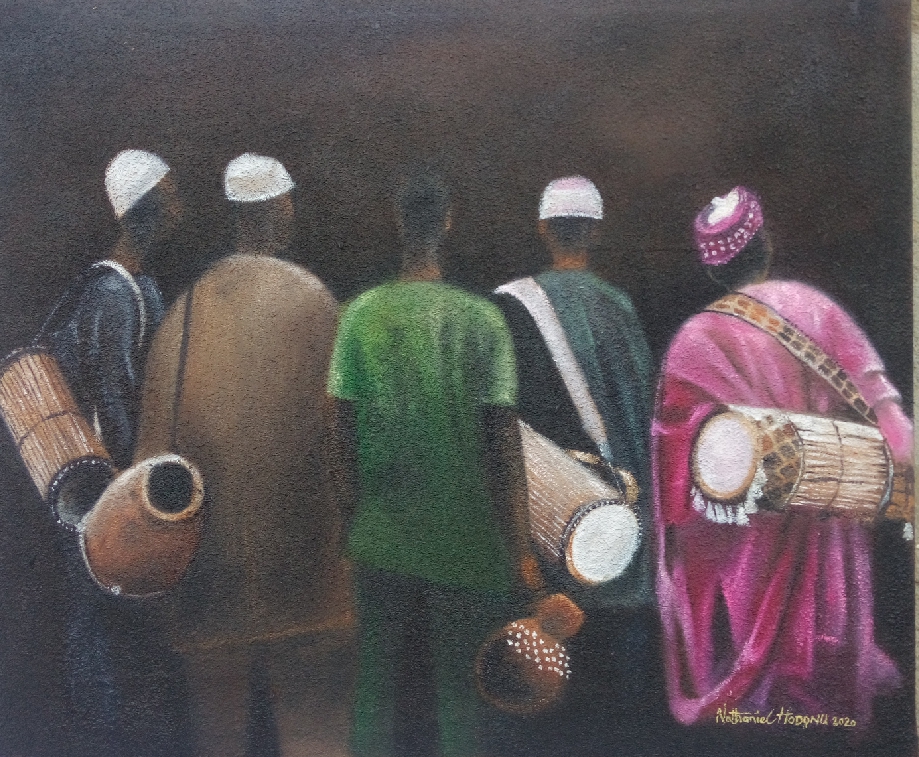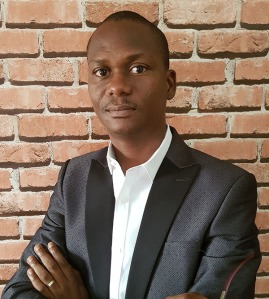Eze’s Your Church, My Shrine takes a dig at religious hypocrisy
By Segun Aribisala
Your Church My Shrine (Kraftgriot, Ibadan; 2017) by Law Ekay Eze is a lengthy novel with 96 chapters and 422 pages, and has a sequel. It is also a satirical novel that aims to expose religious hypocrisy and the desire of many for miracles. Magical elements also abound in the novel.
It is the utmost desire of Pastor Jeremiah Isaac, the founder of Miracle Maker’s Church of God, to perform miracles. Always pushed by his wife, he goes ahead to Mbabama to meet the native doctor Ngabamu who gives him powers and requests in return the life of his most beloved as sacrifice.

Set in Mbabama, a rustic place, and in a modern country called Nigara with capital at Sogal, the protagonist and major character, Jeremiah Isaac, formerly uneducated and chief priest of Odoukpa deity, a position he inherits from his late father alongside his father’s numerous wives, largely made up of old women. But his friend from the city returns to take him to the capital city of Niagara, where he gets some education and converts to Christianity and changes his name from Muobundu Odoukpa to Jeremiah Isaac.
Jeremiah quickly rises from an unpaid worker in the church to church clerk, to deacon, and to assistant pastor within few years. As an assistant pastor, he marries Deborah who urges him to break away from The Lost Sheep Church, owned and controlled by Pastor John, to establish his own church, Miracle Maker’s Church of God in Sogal, because she claims her husband is being cheated on while the pastor gets all the bounties of the church.
The miracles attract people who troupe in to get their own. And, unlike in the former church where he cannot afford a car, life becomes better for the pastor and his wife, until worshippers begin to leave in search of miracles he is unable to perform in his church. The miracles have been the attraction to many, but when nothing happens, they begin to leave. Again, with pressure from his wife, he goes in search of powers to perform miracles by all means, which makes him to encounter Ngabamu, the native doctor in Mbabama.
The story begins in Mbabama, in media res, in the midst of things, starting with a key event in Mbabama and going back in time to explain events that precede it. In his search for magical powers to perform miracles, Pastor Jeremiah goes to Mbabama, a place notorious for the unwillingness of the natives to accommodate strangers especially those bringing in Christianity to displace their native and crude beliefs, or those posing as missionaries.

He stealthily gains the acceptance of the natives within a few months. He learns their language, and begins by teaching them the bible, organising church fellowship, while planning to meet the native doctor, Ngabamu. He also accommodates the son of the native doctor, who eventually facilitates the meeting with his father. Pastor Jeremiah enters into sexual liaison with Biwaki and Tumaki while staying in Mbabama.
Eventually, he meets Ngabamu in his dark enclave called zaza, where he spends four weeks and performs the rituals, which include that he butchers a newborn baby, lies on a decayed corpse, gouges out the eyes of a blind child, destroys the legs of a lame person and drinks blood. It is also required of him that he must sacrifice a human being, the one he loves most every year to renew his powers and that he must call the names of certain gods during services in church for miracles to happen.
Pastor Jeremiah returns from Mbabama to Nigara after being empowered, but he returns with Biwaki, whom he has impregnated. His wife too has been childless and has also started a relationship with Pastor Satin, an assistant to her husband, while Jeremiah was away seeking powers she wants him to have to better their lot. She ends the relationship immediately she hears of her husband’s return. When Pastor Jeremiah lands in Nigara, he performs his first miracle of healing a paralyzed woman at the airport and the news spreads wide and far.
The people of Nigara, always yearning for miracles, rush back to Miracle Maker’s Church of God. While Pastor Jeremiah performs miracles his congregation and fortunes begin to increase, which allows him and his wives live in splendor, riding in big cars and living large, with tithes and gifts coming aplenty.
Deborah would later die from an overdose of drugs, months before she is to be sacrificed to renew Jeremiah’s powers. Ngabamu appears to him one night to remind him of his sacrifice, and demands a replacement for Deborah. He therefore requests for the person he currently loved most, which is Biwaki, and threatens that refusal would cause him his sight, hearing, and also make him lame.
He offers Deborah’s younger brother as replacement, but Ngabamu refuses. So, after some days, he wakes up in bed and discovers he is unable to move, see, hear, speak and walk, and Biwaki is sprawled on the bed smeared in blood.
What happens to Biwaki and her pregnancy? What is the cause of Deborah’s death? How does Pastor Jeremiah keep the covenant with Ngabamu for his powers to perform miracles, and what eventually happens to Jeremiah? These are what await us in the sequel.
It is a long story full of unwarranted twist and turns, and suspense and drama. There are repetitions of details, and unnecessary chapters, which could have been reduced the length of the novel. The plot moves back and forth with no coherence.
A satire, Your Church My Shrine is a story of religious hypocrisy, of moral derailment, of religious shenanigan. The story, also a magical realism, is told from the third person point of view, where the omniscient narrator sometimes moves at will from one character to another. The narrator moves in and out of characters, and sometimes speaks directly to the readers in an authorial, intrusive way.
Your Church My Shrine is a glaring example of Nigeria’s present reality; it’s full of twists and turns in the plots. The novel oscillates back and forth, from present to past, and vice versa, a device that slows down the pace and tempo of the narrative. Also, the use of flashback happens intermittently to reveal past events in the novel.
Eze’s is an addition to the list of imaginative writing in Nigeria that pokes fun at religion hypocrisy, chief among which is Soyinka’s pioneering play, The Trial of Brother Jero.



